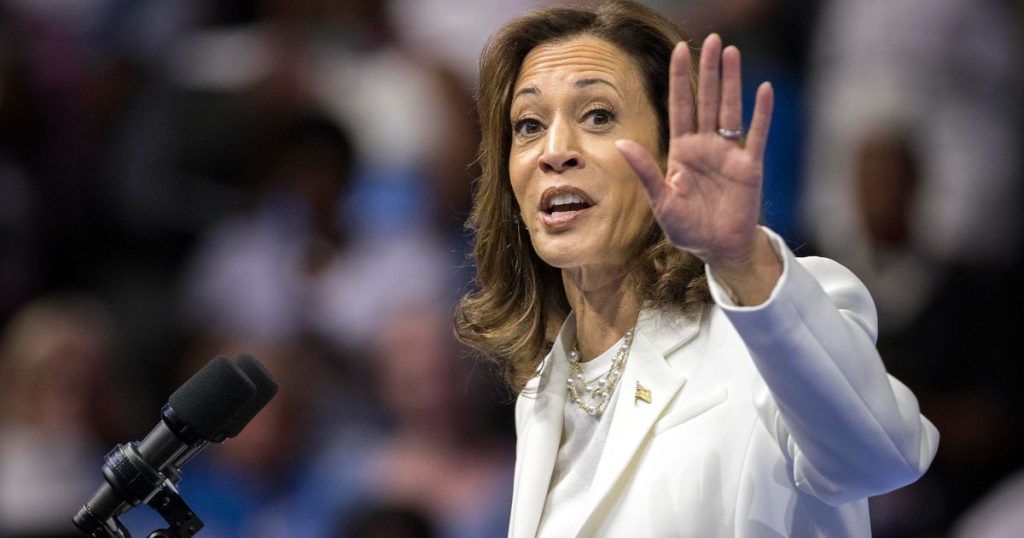In her first interview as the Democratic presidential nominee, Vice President Kamala Harris reiterated her support for fracking and a tough stance on border security, including “consequences” for unauthorized border crossings. This marks a shift from the left-wing positions she held as a presidential candidate in 2019, which her campaign now says she no longer supports. CNN’s Dana Bash questioned Harris on these changes, and Harris confirmed that she no longer supports banning fracking, emphasizing that she did not ban fracking as vice president and would not do so as president.
Harris did not delve into the specifics of her change of heart regarding fracking, but emphasized that she now believes it is possible to grow a thriving clean energy economy without banning the practice. While she did not explicitly state whether unauthorized border crossings should be a civil or criminal offense, Harris did express her belief that there should be consequences for breaking the law. She highlighted her experience in prosecuting transnational criminal organizations and enforcing immigration laws as an attorney general in a border state, underscoring her intention to continue enforcing laws as president.
The interview with Harris comes amid ongoing scrutiny of her past stances and positions, particularly given that she is now the Democratic nominee for president. Her shifting views on fracking and border security have raised questions from critics and supporters alike. However, Harris remained firm in her current stance, emphasizing the need for a balance between economic growth and environmental sustainability, as well as the importance of enforcing laws related to immigration and border security.
Harris’s comments on fracking and border security reflect a pragmatic approach to these contentious issues. While some may view her evolving positions with skepticism, others may see her willingness to adapt and reassess her beliefs as a sign of her ability to respond to changing circumstances and information. As the presidential race continues to unfold, Harris’s approach to key policy areas like energy and immigration will likely remain under close scrutiny, with supporters and critics alike closely watching her positions and statements.
Overall, Harris’s interview as the Democratic presidential nominee highlights her willingness to address controversial topics and engage in discussions about her evolving views. It also underscores her commitment to finding a balance between competing interests, such as economic growth and environmental protection. As the race for the White House heats up, Harris’s positions on key issues like fracking and border security will continue to be debated and analyzed, shaping the conversation around her candidacy and the future of the Democratic Party.


